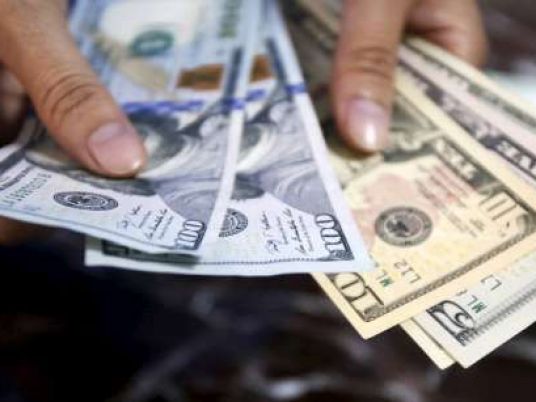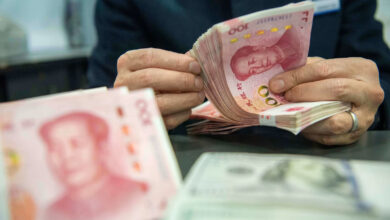
Egypt's central bank said on Thursday it had reached a $2 billion financing agreement with a consortium of international banks, in a deal aimed at boosting foreign reserves as the government pushes ahead with economic reforms.
Egypt has been negotiating billions of dollars in aid from various lenders to help revive its economy, battered by political and economic upheaval since a 2011 uprising.
It expects this week to clinch final approval for a $12 billion three-year loan from the International Monetary Fund. That agreement would support an ambitious reform programme that saw the central bank take the dramatic step last week of floating its currency, the pound.
The central bank said the repurchase agreement announced on Thursday had a maturity of one year, with the banks providing funds against international bonds newly issued by the finance ministry and listed on the Irish Stock Exchange.
"The transaction bolsters the liquidity and size of the international reserves of the central bank," the central bank statement said.
"This transaction complements a series of measures taken recently in order to unleash the vast potential of the Egyptian economy and instil confidence by normalising local market conditions and bolstering economic activity."
Egypt's foreign reserves have plummeted from about $36 billion on the eve of the 2011 revolt to about $19 billion in October as it has struggled to bring back tourists and foreign investors put off by years of turbulence.
With its deficit widening and a currency black market booming, Egypt has embarked on a series of reforms to restore investor confidence, including major subsidy cuts and the introduction of a value-added tax.
"This deal signals a positive monetary-fiscal cooperation and less reliance on foreign support and more on international markets. This is positive for sentiment," said Hany Farahat, senior economist at CI Capital.
The finance ministry said it had issued $4 billion of international bonds as a private placement for the central bank on Wednesday.
The placement includes a $1.360 billion bond with 4.62 percent interest maturing in December 2017, a $1.320 billion bond with 6.75 percent interest maturing in November 2024, and $1.320 billion bond with 7 percent interest maturing in November 2028.
It said the placement would not affect its plans to issue a $2 billion to $2.5 billion Eurobond by the end of the year, although the exact timing would depend on global market conditions and the fallout of Donald Trump's victory in the U.S. election.
Egypt had planned to start a roadshow for its international bond sale in late November.
"This is just bridge financing until we get the Eurobond by January," said Hany Genena, head of research at Cairo-based Beltone Financial. "The $4 billion is like collateral."
Coming two days after the IMF signalled it would approve Egypt's $12 billion loan programme, news of the financing deal helped buoy Egypt's newly floated pound on Thursday.
Egypt devalued the pound by about a third last week from its former peg of 8.8 against the dollar and has since allowed it to drift lower. A shortage of dollar liquidity resulted in low volumes and saw the pound weaken to 18 versus the dollar when markets opened on Sunday for the first time since the float.
The IMF deal and the central bank's repurchasing agreement have raised hopes that fresh inflows would be arriving sooner rather than later to stabilise the currency.




